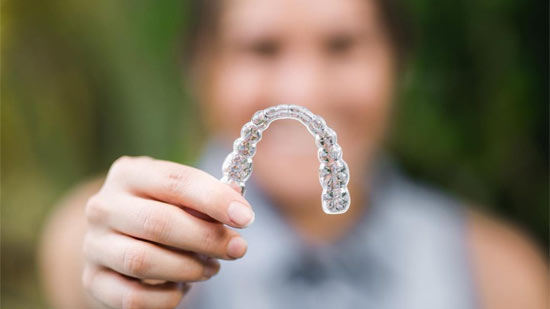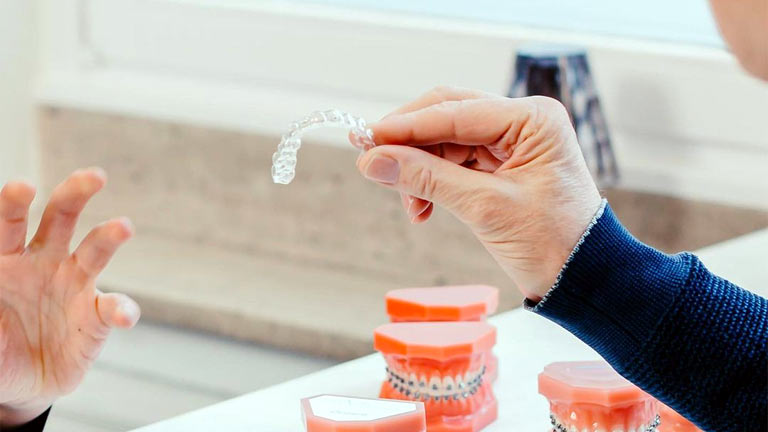
A healthy smile does more than brighten your face. It is a window into your overall health. Just like how a well-maintained car runs smoothly, well-cared-for teeth keep our mouths functioning correctly and pain-free. Moreover, the confidence in flashing a set of well-maintained teeth cannot be understated. We all want that shiny, picture-perfect smile, right? However, achieving and maintaining it requires more than occasional brushing. That’s why the statistics regarding oral health vary widely. 17% of residents (30 and above) report they are embarrassed by their teeth, mouth, or dentures, while most of them rate their overall dental health (teeth and gums) on an average of 47%.
To truly ensure your teeth stay in top condition, you will want to follow some key steps. Here’s how to start.
1. The Role of Regular Dental Check-ups
If you have ever owned a car, you will know that taking it for regular servicing helps spot small issues before they turn into costly repairs. Similarly, visiting your dentist regularly is like giving your teeth a ‘service check.’
Why is this so essential? Firstly, the trained eye of a dentist can detect problems we might miss at home. Issues like the start of a cavity or gum disease often don’t hurt until they have become severe. By catching these early, not only can you avoid pain, but you also save money. A filling is always more affordable than a root canal.
Also, during these check-ups, the dentist usually does a professional cleaning. No matter how good we are with our daily brushing and flossing, there’s always some plaque that escapes our routine. This cleaning prevents plaque buildup, which is a leading cause of cavities. Thus, a quick visit twice a year can ensure your teeth stay in their best shape.
2. Effective Daily Oral Hygiene Practices
But are we doing it right? Here’s a simple guide to make sure you get the most out of your daily oral care routine.
Brushing: It might sound basic, but the way you brush matters a lot. Always choose a toothbrush that feels comfortable in your hand and mouth. The bristles should be soft to prevent gum damage. Also, imagine your teeth are divided into four quarters. Spend at least 30 seconds brushing each quarter, making sure you reach the back teeth, too. A two-minute routine twice a day is a great habit.
Remember, moving your toothbrush in gentle, circular motions helps in removing plaque effectively. Avoid vigorous back-and-forth movements, which can cause gum recession or wear down your tooth enamel.
Flossing: Many of us neglect this crucial step. But think of it this way: when we wash our hands, do we rub the palms and neglect between the fingers? Of course not! Similarly, flossing cleans the spaces between our teeth areas where a toothbrush might not reach. Ideally, it is best to floss once a day. It removes bits of food and plaque trapped between the teeth, which, if left unattended, can lead to cavities or gum diseases..
3. Consider Orthodontic Treatments
Misaligned teeth or a crooked smile isn’t just about looks. They can actually pose challenges to your dental health. Think about it; if your teeth are too crowded or have gaps, they can be harder to clean, making them more susceptible to cavities and gum diseases.
That’s where orthodontic treatments come in. They help align the teeth and correct bite issues. Braces are the most common solution for children and teenagers, but they are not the only option. There are clear aligners for adults who may not want traditional braces. These aligners are nearly invisible and can be removed while eating or brushing. So, visit an orthodontist and determine the best treatment for yourself.
4. The Significance of Diet in Dental Health
Our teeth, just like the rest of our body, need the right nutrients to stay strong and healthy. Consuming a balanced diet helps ensure our teeth get all the essential minerals and vitamins they need.
For instance, calcium, found in dairy products, greens, and nuts, strengthens the enamel. Crunchy fruits and vegetables, like apples and carrots, act like natural toothbrushes. They help in scrubbing away food particles and stimulate saliva production, which fights bacteria.
However, not everything we eat is teeth-friendly. Sugary foods and drinks are a common enemy. Bacteria in our mouth feed on sugars to produce acids, which then attack the teeth. Over time, this can cause cavities. Limiting sugary treats and sodas can prevent this.
5. Avoiding Tobacco and Limiting Alcohol
One of the lesser-known benefits of quitting smoking or chewing tobacco is the positive impact it can have on your dental health. Tobacco, in any form, can be harmful to the mouth. It can cause yellowing of teeth, bad breath, and, in the worst cases, even mouth cancer. Also, people who smoke or chew tobacco are at a higher risk of gum disease, which can lead to tooth loss.
Now, let’s talk about alcohol. Drinking occasionally is generally considered okay, but excessive alcohol can cause problems for your teeth. Alcohol, especially wine, can stain teeth. Moreover, many alcoholic drinks are high in sugar and can dry out your mouth, leading to a higher risk of cavities. If you do indulge, make it a habit to drink water alongside to keep your mouth hydrated and help wash away the sugars.
6. Importance of Safe Dental Products
Choosing the right products can make a big difference in your dental health journey. Here are some simple guidelines:
Toothpaste: It is best to choose one that contains fluoride. Fluoride is a natural mineral that helps strengthen tooth enamel and fight cavities. When shopping, look for the approval seal from a recognized dental association since it ensures the toothpaste is safe and effective.
Mouthwash: Not everyone needs to use mouthwash daily. However, if you decide to include it in your routine, pick an alcohol-free one. Alcohol can dry out the mouth, and as we learned earlier, a dry mouth can increase the risk of cavities. Again, an approval seal is a good sign.
Whitening products: Everyone wants a bright smile, but it is essential to be cautious. Some over-the-counter whitening products can be too harsh and wear down enamel. If you are considering teeth whitening, it might be best to discuss it with your dentist first. They can recommend safe and effective options.
Conclusion
Achieving a healthy, bright smile isn’t the result of a one-time effort. It is the small daily habits – brushing, flossing, eating right, and making informed choices – that make the biggest difference. And while our teeth are sturdy, they need our care and attention to stay that way. So, let’s prioritize our dental health. After all, our smile is one of the first things people notice about us. Looking up Hendersonville, TN orthodontist will help you in finding the right orthodontists for your dental needs.




